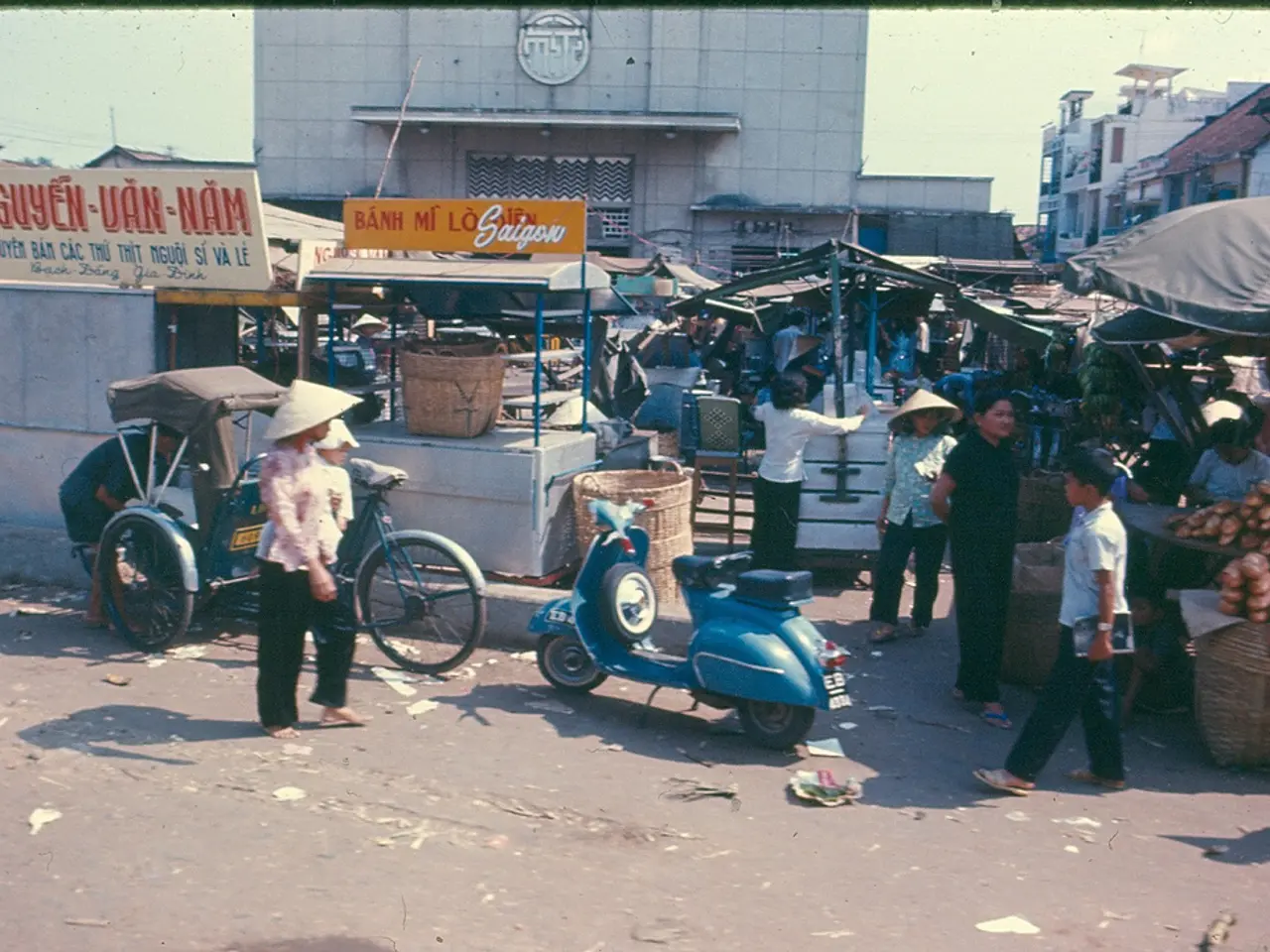Discourse on Plastic Waste Solutions Initiated Nationally in Madagascar, Commencing July 2nd, 2025
In the heart of Madagascar, the IslandPlas campaign, a part of the Zero Plastic Waste initiative led by the IUCN, was introduced during World Environment Day 2025 on Sainte Marie Island. The campaign, designed to reduce plastic waste, particularly in island environments, aims to protect the fragile ecosystems that are vulnerable to pollution due to their limited land area and high reliance on marine resources.
The IslandPlas campaign emphasises effective community engagement as a cornerstone of its strategy. This approach involves educating local populations about the impacts of plastic waste, involving them in waste management decisions, and promoting sustainable practices. By aligning community needs with environmental goals, significant reductions in plastic waste can be achieved.
The campaign's alignment with local needs has been a key factor in its success. Programs like IslandPlas that address specific challenges faced by island communities are more likely to be practical and sustainable over time. This approach was evident in the IslandPlas Project's roadmap in Madagascar, which will be aligned with Great Blue Wall goals, particularly around governance, circular economy, and nature-based solutions.
The event, which marked 10 years of the Population Health Environment (PHE) Network in Madagascar, was significant. Representatives from the Ministry of Environment, including the Director General of Environment, Mr. Rivosoa Rabenandrianina, were present and vocal about the importance of citizen engagement in national efforts on plastic waste reduction. The IslandPlas approach, focused on community engagement and circular economy thinking, was noted as being strongly aligned with these national directions.
The performance during the event, which featured young Malagasy delegates, effectively demonstrated the impact of plastic pollution on ecosystems and homes. The event brought together various actors such as government ministries, civil society, protected area managers, health actors, and youth leaders, fostering a collaborative environment for the campaign's success.
The IslandPlas Project will collaborate with protected area institutions on waste mitigation strategies, co-design training and awareness tools for youth and community actors, and support the mainstreaming of plastic waste education into community health programs. The Project has secured government recognition as a relevant and aligned campaign, positioning it as a complementary force in integrated plastic waste action, not as a separate campaign.
While specific details about activities in Madagascar are not yet available, the general principles of community engagement and alignment with local needs are key components of successful plastic waste reduction initiatives. The IslandPlas Project in Madagascar, under the ESARO website with support from The Coca-Cola Foundation, is poised to make a significant impact in the fight against plastic pollution in the region.
- The IslandPlas project, within the Zero Plastic Waste initiative led by IUCN, focuses on nature-based solutions to combat plastic waste, specifically in island environments like Madagascar.
- Protected areas in Madagascar will collaborate with the IslandPlas project to develop waste mitigation strategies, furthering biodiversity conservation and pollution control efforts.
- The IslandPlas approach emphasizes science and environmental-science, using research and data to inform effective community engagement and sustainable practices.
- Climate-change mitigation is a crucial aspect of the IslandPlas campaign, as plastic waste contributes to global warming and impairs fragile ecosystems.
- Finance plays a significant role in the IslandPlas project's success, with support from The Coca-Cola Foundation ensuring its implementation and impact in home-and-garden and real-estate settings.
- Lifestyle changes, including adopting eco-friendly habits and sustainable fashion-and-beauty choices, can reduce plastic waste and support the objectives of the IslandPlas campaign.
- Education-and-self-development and personal-growth are enhanced through the IslandPlas project, as participants learn about the impacts of plastic pollution and develop skills in environmental management and leadership.
- Career-development opportunities in environmental fields such as pollution control and climate-change mitigation may arise from participating in or supporting the IslandPlas project.
- The sports sector can contribute to the IslandPlas campaign by promoting circular economy thinking, as in the case of sports-betting platforms that offer eco-friendly betting options or basketball teams that engage in community clean-up events.
- Weather patterns in Madagascar and other island environments will be influenced by the success of the IslandPlas project, as improved waste management can lead to healthier ecosystems and increased resilience against extreme climatic events.
- Travelers can support the IslandPlas project by choosing eco-friendly accommodation, consuming food-and-drink from sustainable sources, and participating in local conservation efforts during their travels.






